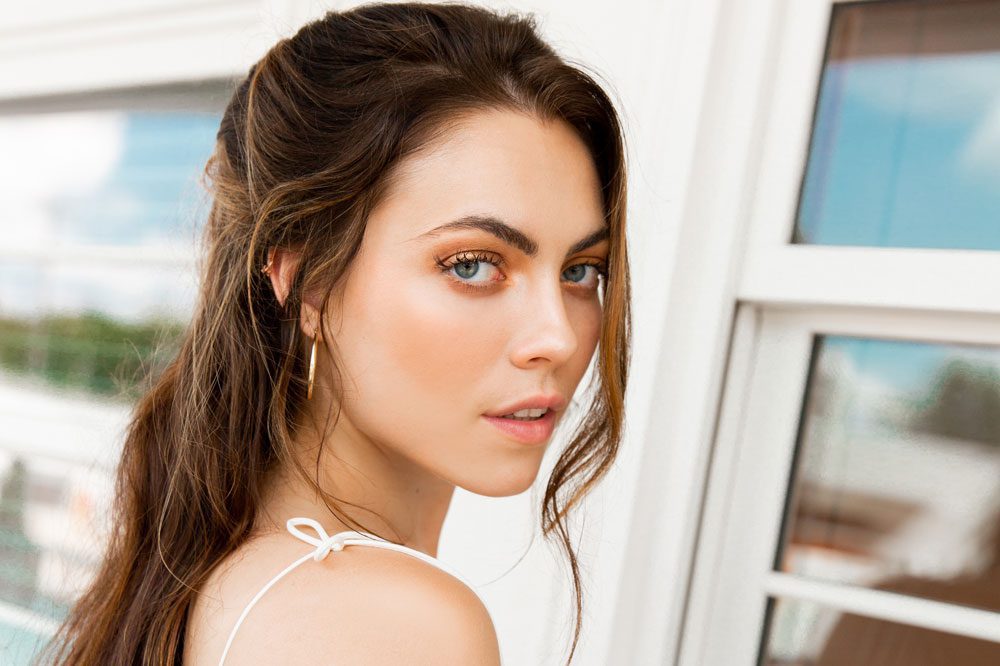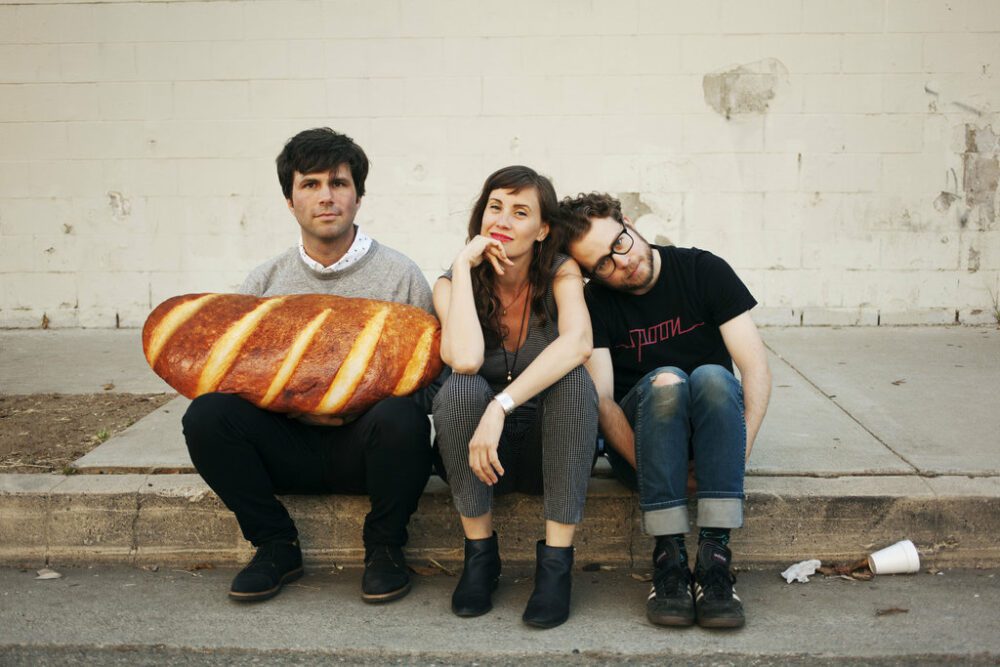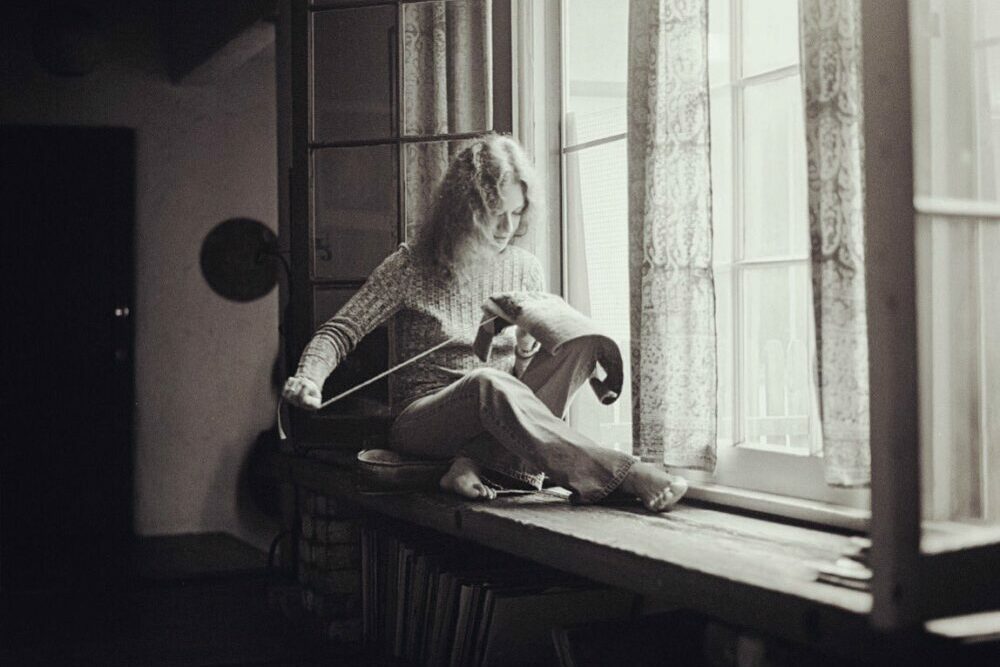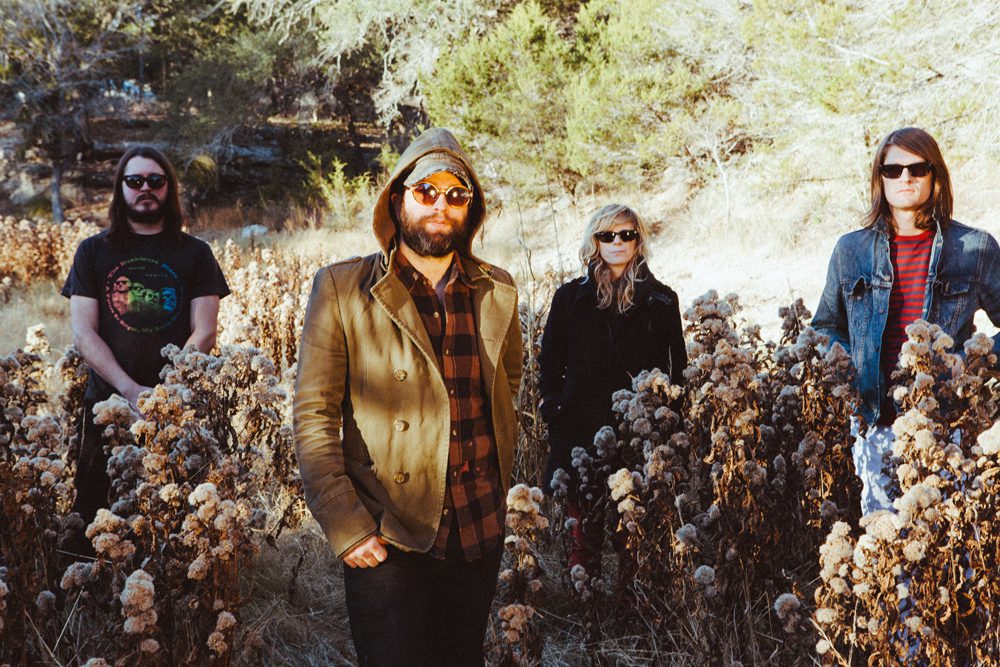

Emily Weisband believes there’s a difference between honesty and truth. A prolific songwriter whose cuts include Camila Cabello’s “Consequences” and “Boy with Luv” by BTS & Halsey, she knows what she’s talking about. But in song, one person’s honesty can be someone else’s falsehood, casting a disconnect between listeners; the more specific songwriting gets, the stronger ties grow, and a listener can then slot themselves into the story.
“Details might not be everyone’s details, but the core truth is everyone can inject their own details into a story,” she observes. “If I tell you, ‘Oh, I got broken up with in a car, and I was wearing a red shirt,’ you could say, ‘Oh, well, I got broken up with in a car, but my shirt was blue.’ The more specific you are, this opens Pandora’s Box of imagination and storytelling.”
Weisband cracks that creative box open wide on her new EP. Not Afraid to Say Goodbye follows 2019’s Identity Crisis and stands as both an extension and natural progression. “A normal part of your 20s is figuring life out. I didn’t really try to fit into any box with either project,” she tells Audiofemme. “I’m very confessional, so whatever is happening right now is what I invite people into.”
Identity Crisis unabashedly embraced the mess. As any 20-something knows, that first decade of adulthood can be full of mistakes, tragedies, and countless nights crying on the bathroom floor – that’s just how it is. Weisband has seen it all, and her debut LP proposed this morsel of wisdom: she learned who she was not. “That’s where I left off with that album. I don’t necessarily know who I am all the time, but I definitely know what I’m not about,” she says. “I know what sucks the life out of me, and I know what hurts me. I don’t want to willingly sign up for it anymore. I want good people and things in my life. It’s an empowering thing to draw boundaries.”
Not Afraid to Say Goodbye picks up exactly where she left off. Across four songs, featuring contributions from producers Tofer Brown, The Futuristics, and Alysa Vanderheym, Weisband bravely exposes her heart, scars and all. While continuing to reclaim the emotional narrative, she reassesses an unexpected breakup that sent her spiraling out. She had to totally lose control before she could regain any of it.
“I swear to God I don’t know who you are,” she cries on the brutally fragile “Out of This Car;” three months post-heartbreak, she revisits that specific moment again. “The Way I Say Goodbye” works as a companion piece to “Out of This Car,” but the former arrives as her “surrender” song, as she describes it. “It’s an evolved perspective on that same moment. You can pour your heart out all you want and do everything in your power to let somebody know how you feel for them,” she says. “At the end of the day, you can’t make somebody love you who just doesn’t. It was a humbling moment being told somebody didn’t want to be with me, and it’s really easy to feel you’re not enough.” The piano-based melody glistens, timelessly harkening back to the work of Frank Sinatra, Nat King Cole, and Joni Mitchell that Weisband has always loved. It’s forever imprinted with her unique voice, of course, but she filters the words with a cool classic lens. “This song embodies who I am as a human in so many ways,” she says.
“You’re Cool,” co-written with good friend Vanderheym, glues to the piano as well, and offers a soul-stirring gospel backlight on the hook. Inspired by a Las Vegas trip, the song delves into the early panic of a burgeoning romance with her current boyfriend. “As humans, we are so zero to 100. We’re all or nothing. It’s awesome but so warped sometimes. Most of the time, it’s not all one thing,” Weisband explains.
She interrogates the sometimes overwhelming pressure we put on new relationships on “The One.” “We idolize this idea of ‘The One.’ They’re either ‘The One’ or trash,” Weisband says, noting she was careful not to fall into that trap this time, instead, letting the relationship be whatever it was going to be. “It was empowering to know someone didn’t need to be The One right now. I was still getting to know him, and he didn’t win my entire trust and heart the moment I met them,” she continues.
What marks her growth as a person and songwriter the most is her willingness to confront the past and her Virginia upbringing. Like many who grew up in the church, Weisband has done plenty of deconstructing and rebuilding of faith ─ and it’s made all the difference to the person she’s become. “My childhood wasn’t suppressing, necessarily. I had fantastic parents, but kids don’t know grey areas. Adulthood is when you go to the grey. My parents were teaching what we believed,” she says. “I did the faith song and dance.”
Upon entering her teens and early 20s, Weisband’s entire world had opened up. “I started experiencing more and meeting different kinds of people ─ and feeling and desiring more things. I don’t think any human wants to believe something because they feel they have to,” she offers. “That’s not an inspiring experience at all. I started asking questions. I’m not saying you should go out and rebel against everything you were taught, but I am grateful for the process. I had to arrive at a place where what I believed was true to my convictions and not to please anybody else.”
She finally bloomed, as did her songwriting. “My music became more human. For people who grew up in the church, there is a danger of getting wrapped up in what you do or don’t do, what you say or don’t say. There’s almost a sense of trying to be superhuman all the time, and that’s what makes you a good Christian,” she explains of the transformation. “In a lot of ways, I tried to be superhuman, and that came across in my writing. I wrote about real life things, but they weren’t real to me ─ because I didn’t want anyone to know I was thinking that or doing that or going through that. I was constantly chasing superhumanness.”
A turning point came when she allowed herself to get in touch with her own “humanity and everything that meant,” from sexuality to personal flaws. “I recognized my desire for faith that was authentic to me,” she says.
Her storytelling became messier, too, perfectly tuned into what the truth actually was. “I took myself off this church pedestal I grew up on,” admits Weisband. “It’s not like I’m anti-church or anti-the way I grew up. There were some really great things that were instilled in me.”
Writing Cabello’s “Consequences,” alongside Amy Wadge and Nicolle Galyon, was another moment of clarity. Weisband was right in the middle of her identity crisis and needed to pull things together to get to a writing session. “I’d gotten involved in some stuff that I was really ashamed I’d gotten involved in. And I was suffering the consequences. I didn’t want anybody to know,” she recalls. “I don’t cancel writes, but I was seriously considering not going to work that day. I just know me, and I’m a tell-all queen. I know if they ask how I am, I won’t be able to lie to them. I’m not an actress.”
Her co-writers naturally asked her how she was, and after a bit of prodding, she eventually broke down into tears, revealing every not-so-pretty detail. “I was really embarrassed that I told them everything and really embarrassed we wrote the song,” she admits now. But her fearlessness in that moment led to a career-defining moment. Wadge, a frequent Ed Sheeran collaborator, called her up later to tell her how much he loved the song and that he wanted to send it off to Cabello, who was working on her debut LP.
Cabello loved it, too, cut it, and the rest is history. “It was one of my first lessons that it matters to sacrifice your pride and privacy to write music. This is what creators do. We feel it and make sense of it, so the world doesn’t have to,” she says.
Emily Weisband sacrifices much more than her pride and privacy on her new EP. Not Afraid to Say Goodbye outlines pain and brutal honesty few are willing to explore, erupting into one of the year’s best releases. Her knack for hooks mingles ceremoniously with gut-wrenching balladry, and it perfectly captures her ongoing journey through her 20s.
“It’s been a rocky time. It’s beautiful and exciting. You look back on those early years and go ‘hell yeah!’ But I don’t know many people who’d want to actually go back to them. You want to belong in the world, but you don’t know where you belong,” she says. “And I’m still going through that process, and I think I’ll always go through it to a degree. I think creators are all children until we’re 80.”
Follow Emily Weisband on Facebook and Instagram for ongoing updates.




